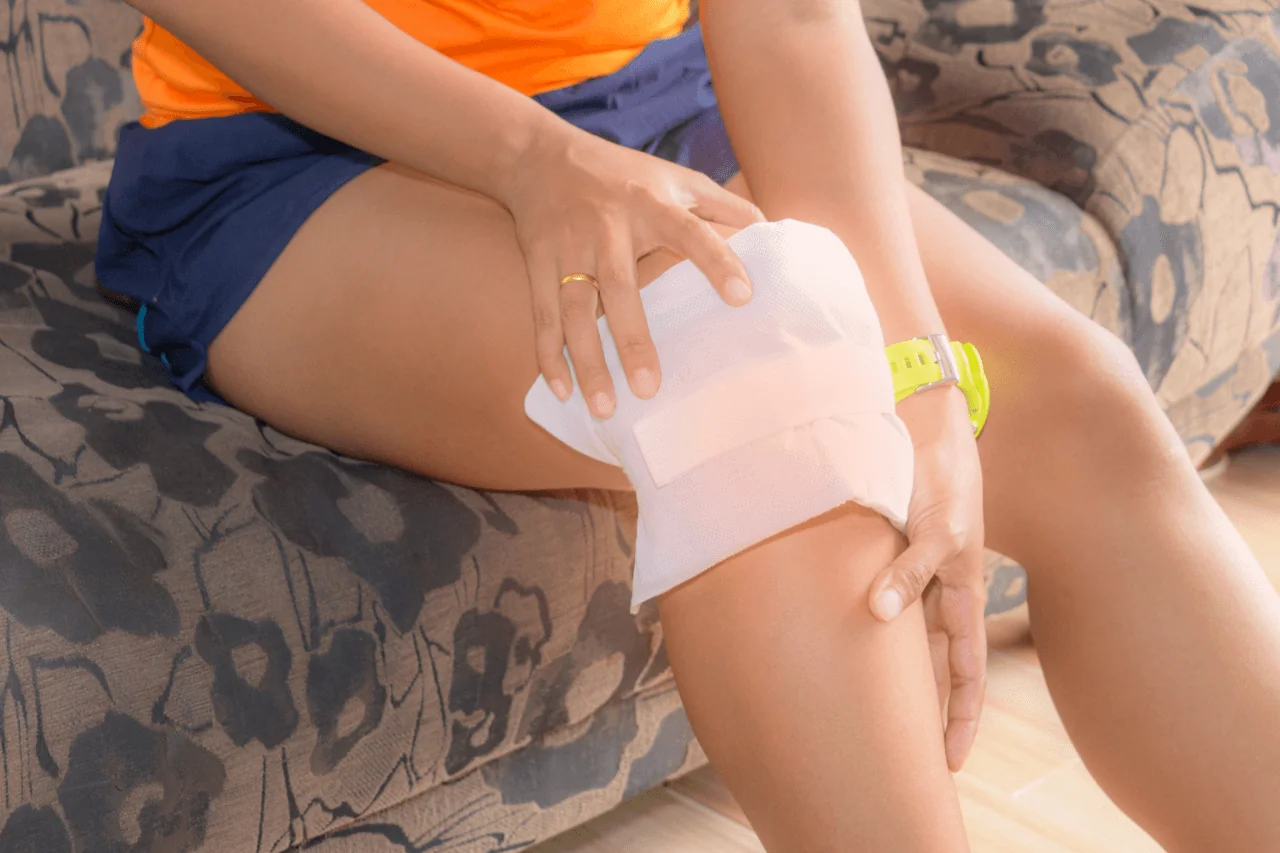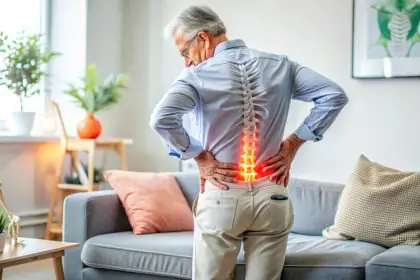Imagine this scenario: you wake up in the morning, ready to tackle the day, but as you take the first step, you feel a familiar and annoying twinge in your knee. The pain quickly reminds you that something isn’t right.
“Not all of Grandma’s remedies were successful or are recommended nowadays,” says Kris Deeter, MD, FAAP, a pediatric intensivist at Pediatric Critical Care of South Florida and Joe DiMaggio Children’s Hospital in Hollywood, Florida. “But many have been studied and proven useful in offering relief for common health conditions.”
What should you do in such moments?
The answer may be closer than you think, perhaps in your grandma’s kitchen to relieve knee pain. In this article, I’ll guide you through seven tried and true remedies beloved by generations to relieve knee pain, using natural and simple ingredients that you probably already have at home.
Some risk factors that can lead to knee injuries:
- Age: As we age, the cartilage in our knees naturally wears down, making them more prone to injuries.
- Overweight: Excess weight puts additional pressure on the knees, increasing the risk of injuries.
- Physical activity: Engaging in certain sports, especially those involving impact, such as running, jumping, or skiing, can increase the risk of knee injuries.
- Muscle weakness: Weak muscles around the knee can make the joint more vulnerable to injuries.
- Muscle imbalances: Muscle imbalances in the legs can increase strain on the knees, making them more prone to injuries.
- Previous injuries: If you’ve injured your knee in the past, you have a higher risk of re-injury.
- Certain medical conditions: Some medical conditions, such as rheumatoid arthritis, can increase the risk of knee injuries.
In this blog, we’ll explore 7 simple and effective home remedies you can find in your grandma’s kitchen to relieve knee pain:
Cold and Hot Compresses
Cold and hot compresses are a classic way to reduce inflammation, pain in the joints and to relieve knee pain. Cold compresses help numb the area and reduce swelling, while hot compresses relax the muscles and promote circulation. You can alternate between cold and hot compresses for 15-20 minutes at a time, several times a day.
Turmeric
Turmeric is a spice known for its anti-inflammatory properties. It contains curcumin, an active compound that can help alleviate pain and stiffness in the joints. You can consume turmeric powder by adding it to your milk, teas, or smoothies. You can also take curcumin supplements or apply a paste of turmeric and water directly to the affected knee.
Ginger
Ginger is another natural anti-inflammatory ingredient that can help relieve knee pain. You can consume freshly grated ginger in teas or smoothies, or take ginger supplements. You can also apply a hot ginger compress to the affected knee.
Apple Cider Vinegar
Apple cider vinegar has anti-inflammatory and analgesic properties that can help reduce pain and inflammation in the joints. You can dilute apple cider vinegar in water and drink it as a tonic, or apply it directly to the affected knee with a soft cloth.
Coconut Oil
Coconut oil is a natural moisturizer that can help relieve dryness and irritation in the skin around the knee. It also has anti-inflammatory properties that can help reduce pain and swelling. You can apply warm coconut oil directly to the affected knee and gently massage it in order to relieve knee pain.
Gelatin
Gelatin is a natural source of collagen, a protein that is essential for joint health. Consuming gelatin can help improve flexibility and reduce joint pain. You can add gelatin to your smoothies, soups, or desserts, or take collagen supplements.
Rest and Elevation
It’s important to give the sore knee rest to allow it to recover. Avoid activities that cause pain and elevate the knee above heart level when possible.
At what point should you decide to see a specialist?
It is important to seek medical attention if you experience any of the following symptoms:
- Severe knee pain that does not improve with rest or over-the-counter pain relievers.
- Significant swelling in the knee.
- Instability or difficulty walking.
- Popping or crunching in the knee.
- Redness or warmth in the knee.
If you have any of these symptoms, it’s important to consult a doctor or physical therapist for diagnosis and proper treatment. Early treatment can help prevent more serious injury and get you back to your normal activities as soon as possible.
Additional tips for preventing knee injuries:
- Maintain a healthy weight.
- Strengthen the muscles around the knees.
- Warm up properly before exercising.
- Wear appropriate footwear for your physical activity.
- Avoid activities that cause knee pain.
If you have any medical condition that increases your risk of knee injuries, talk to your doctor about how to manage it.
Remember: Taking care of your knees is important to stay active and enjoy life. By being aware of risk factors and seeking medical attention when necessary, you can help prevent knee injuries and stay mobile.
FAQs
What causes knee pain?
Knee pain can be caused by a variety of factors, including injuries, aging-related wear and tear, overweight, arthritis, ligament or tendon problems, and underlying medical conditions.
Are these home remedies safe for everyone?
While many of these home remedies are safe for most people, it’s always important to consult with a healthcare professional, especially if you have pre-existing medical conditions, known allergies, or are taking medications if you need to relieve knee pain.
How long will it take to see results using these remedies to relieve knee pain?
Results may vary depending on the individual and the severity to relieve knee pain. Some people may experience immediate relief, while others may require time and consistency in applying the remedies to notice significant improvements to relieve knee pain.
What is the best way to apply these remedies?
The best way to apply these home remedies is to follow the instructions provided in the blog. For example, cold and hot compresses can be alternated for a few minutes, while oils and poultices can be gently massaged onto the skin.
Should I discontinue other medical treatments while using these remedies?
It is not recommended to discontinue other medical treatments without consulting with a healthcare professional first. These home remedies can relieve knee pain and complement other treatments, but it’s important to follow your doctor’s recommendations.
Can I use these remedies preventively or only when I feel knee pain?
Some of these home remedies to relieve knee pain, such as turmeric tea or coconut oil massage, can be beneficial as part of a preventive care routine to maintain healthy joints. However, it’s always important to listen to your body and seek medical treatment if you experience persistent pain.
Summary
Knee pain can be a frustrating nuisance, but there are many simple and effective home remedies you can try to relieve knee pain. These remedies, along with rest and proper medical care, can help you get back on your feet and enjoy your favorite activities.





